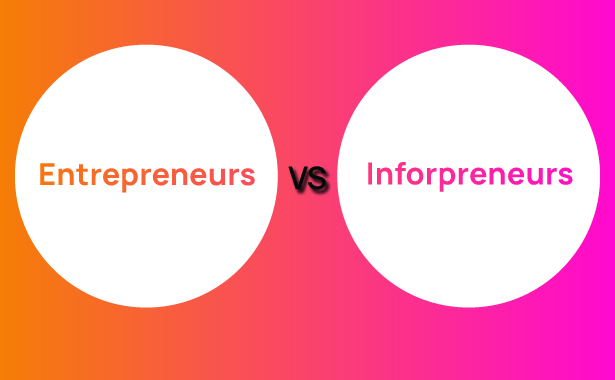Contents
What is Venture Capital Financing for Startups
The decision to turn to venture capital financing is a big one, and it’s one that most startups must make at some point. Venture capital firms provide funding for businesses that need funding but do not have an existing revenue stream or assets. In exchange for this money, these firms typically take a significant stake in your company in order to ensure their investment pays off. If you’re considering venture capital financing for your startup, here’s what you need to know about this type of financing process:
What is Venture Capital Financing in Entrepreneurship?
What is Venture Capital Financing in Entrepreneurship?
Venture capital financing consists of funds that are provided by investors to business owners who want to start their own businesses. The money is usually used for startup costs and marketing, as well as any other expenses related to launching a company.
Venture capital financing can be very helpful for entrepreneurs because it provides them with the necessary funding they need to grow their companies without having to worry about going into debt or using their personal savings accounts. It also allows entrepreneurs who may not have enough money saved up yet but still want the opportunity of starting their own businesses right now, which often leads them down paths that eventually lead them towards bankruptcy if not taken care properly.
The Process of Venture Capital Financing
Venture capital financing is often a complicated process, but it doesn’t need to be. Once you understand the basics of how venture capital financing works, you’ll see that it’s actually quite straightforward.
To begin with, your business will need to have a good idea and some sort of proof that it can succeed in order for any VC firm to consider investing in it. If they like what they see then they’ll make an investment offer which will include its terms and conditions (the financial aspects). You’ll then take this information back with you and decide whether or not the deal makes sense for your business’s future plans based on several factors such as whether or not the terms are acceptable or if there are other opportunities that might be better suited for your needs instead. Once both parties agree on something mutually beneficial then negotiations begin!
Advantages and Disadvantages of Venture Capital Financing
There are many advantages and disadvantages to venture capital financing.
Advantages of Venture Capital Financing
- Investors have a wider time horizon than you do, so they’re more willing to wait for your startup to make money. If you’re worried about running out of cash before your business takes off, these investors can provide you with the funding you need while keeping their hands off your company’s day-to-day operations.
- Venture capital firms have access to a lot of deals that are not available on other kinds of financing platforms like crowdfunding sites or angel investors. They can help find great ideas for businesses who want more than just $100K—they’ve usually got millions in reserve!
Disadvantages of Venture Capital Financing You lose control over your company. Venture capital firms often require a seat on the board and voting rights for their investments. This means they can override decisions made by founders if there’s ever any disagreement about how things should be run.
Venture capital firms are not interested in helping small companies. They invest for scale and high returns, so they’re looking for businesses with the potential to grow fast. If you want to stay private, then venture capital financing is probably not the right choice for you.
A clear understanding of venture capital financing can help you decide if this kind of funding is right for your startup.
If you’re a startup founder, it’s essential to understand the pros and cons of venture capital financing before deciding whether or not this kind of funding is right for your business.
There are many different types of funding opportunities available to startups. Each type has its own set of benefits and drawbacks, but if managed properly, each one can help your company grow. With a clear understanding of the basics of venture capital financing, you’ll be able to manage the many opportunities that come along with raising money from outside investors.
The first thing to know about venture capital is that it’s not a loan. Instead, this type of funding comes in the form of an investment made by an outside investor to your company with an expectation that they’ll earn back what they put into their business plus some return on their original investment
How to Manage Your Startup’s Venture Capital Funding Opportunities
You’re the CEO of a startup, and you’ve been working hard to make your business grow. But there are times when things get tough and your company needs help in order to move forward.
Every entrepreneur has had to deal with this issue at some point during their career as an entrepreneur.
In this article, we’ll break down how venture capital funding works so that you can make smart decisions about whether or not it’s right for your company.
Understanding the Venture Capital Funding Process First of all, let’s define what venture capital is. It’s basically an investment made into a company or business by other companies who are looking for high-growth opportunities. Venture capitalists make their money by owning equity in startups that have yet to be profitable but could become successful later on.
For example, let’s say you are the CEO of a startup and you’ve been working hard to make your business grow. But there are times when things get tough and your company needs help in order to move forward. Every entrepreneur has had to deal with this issue at some point during their career as an entrepreneur. In this article, we’ll break down how venture capital funding works so that you can make smart decisions about whether or not it’s right for your company.
Pre-Seed Funding and Venture Capital Financing
Pre-seed funding is a type of funding that helps startups test and validate their business model before they look for seed funding. Pre-seed funding can often be self-funded by the founders or funded by loans or investments from friends or family. Pre-seed funding can help you build a prototype, conduct market research, hire your early team members and start to gather feedback on your initial product. Some entrepreneurs use crowdfunding as a form of pre-seed funding for their startups. Competitive pitch competitions, incubator and accelerator programs are other sources of pre-seed funding for startups
Pre-seed funding is a type of funding that helps startups test and validate their business model before they look for seed funding.
Pre-seed funding is a type of funding that helps startups test and validate their business model before they look for seed funding. Pre-seed funds can help you build a prototype, conduct market research, hire your early team members and start to gather feedback on your initial product.
Pre-seed funding can often be self-funded by the founders or funded by loans or investments from friends or family.
Pre-seed funding can often be self-funded by the founders or funded by loans or investments from friends or family. Self-funding is a good option for many entrepreneurs, but there are risks when taking out a loan from friends and family. Loans may be risky if they will cause other financial problems if you cannot pay back the loan on time. Crowdfunding is another way to raise money without having to take out a loan, which can help protect your credit score if you decide not to pay back the money that was invested in your business.
This is not only good for testing your idea but also for testing your market. Do people like what you’re doing, and are they willing to give you money so that it can happen? This is an important question because if the answer turns out to be “no,” then there’s no need to move forward with any further development—you’ll have already validated your business model (or lack there of funding can also be acquired through crowd-funding. Crowdfunding offers an alternative to loans because it allows entrepreneurs to raise money without taking on any debt. This type of funding provides people with the opportunity to invest in your project and receive something in return for their investment, such as a product or service.)
Pre-seed funding can help you build a prototype, conduct market research, hire your early team members and start to gather feedback on your initial product.
Pre-seed funding can help you build a prototype, conduct market research, hire your early team members and start to gather feedback on your initial product. This is a great way for startups to get started because it allows them to validate their idea before they have raised substantial amounts of money from investors.
Pre-seed funding is also helpful because it helps startups avoid the temptation of hiring too many people too early in their development process. If the startup has already raised some capital, then they may feel pressure to expand quickly before they are ready, which could put them at risk for failure later on down the road if sales or user adoption don’t meet expectations.”
Some entrepreneurs use crowdfunding as a form of pre-seed funding for their startups.
Crowdfunding is a way to fund a project or business without the help of a bank or a loan. Instead, you pitch your idea directly to people who are interested in it and see if they’ll pay for it by making small donations. If you’re able to get enough donations, then you’ve got the money required to get started on your project.
But crowdfunding isn’t just for new businesses; some entrepreneurs use crowdfunding as a form of pre-seed funding for their startups. If this sounds like something that would work well for your idea, follow these tips:
- Make sure that what you’re pitching makes sense from both an economic and technical standpoint (and remember: no matter how great your idea may be, there’s always someone out there who will try to tell you otherwise).
- The best way to test whether people really want what you’re selling is by getting feedback from them before investing too much time into creating something they might not buy once released into the wild world beyond Kickstarter or Indiegogo (two popular platforms used by many startups).
Competitive pitch competitions, incubator, and accelerator programs are other sources of pre-seed funding for startups
If you’re a student and are looking for pre-seed funding for your startup, then you should consider joining university pitch competitions. These are organized by universities, incubators and accelerators to give students an opportunity to get feedback on their business idea. The organizers also offer prizes that can help pay off school loans. You might even win cash prizes! And don’t worry if you don’t win; some of the most successful startups today were rejected from these competitions when they first started out.
Other sources of pre-seed funding include accelerators and incubators like Y Combinator (YC), TechStars, 500 Startups and AngelPad — all of which provide seed funding as well as mentorship in exchange for equity stakes in the companies they invest in.
Free or Low-Cost Funding Opportunities
- Crowdfunding platforms
- Accelerators and incubators
- Competitions
- Family and friends
- Loans
For these reasons, many entrepreneurs can capitalize on these free or low-cost resources to get going with their business. Types of pre-seed funding There are different types of pre-seed funding available to entrepreneurs, each of which has pros and cons. (See “Top 5 Sources of Preseed Funding” below.) Before applying for any type of funding, you should have a good idea of what your business needs and how much money it will take to get things off the ground.
Crowdfunding. Crowdfunding is a way for entrepreneurs to raise money from a large number of people who are interested in supporting their business ideas. There are several different types of crowdfunding platforms, each of which has its own set of rules and regulations.
Pre-seed funding is a way for startups to get the money they need to get off the ground. It can be applied to pretty much any business idea and can help bridge the gap between having an idea and being able to go forward with it by proving that there are people interested in what you’re offering. Pre-seed funding is usually provided by angels, accelerators/incubators or seed stage VCs.
Friends & Family Funding
Friends and family funding is the least risky type of funding because it’s usually easy to get. However, this type of funding is also the smallest amount of money you can receive. Therefore, it’s not a good idea to use friends and family funding as your only source of funding. It’s best used as a way to test your ideas before going out into the world with them.
On top of that, friends and family funding is not always easy to get. If you have people in your life who are financially stable and willing to help you out, then it will be easier. However, if no one has any money or wants to give it away, then this type of funding becomes more difficult.
Incubator/Accelerator Funding
Incubator funding is a relatively new form of pre-seed funding for startups, and it’s typically available only to tech companies. Incubators are organizations that provide funding, mentorship and support services to help entrepreneurs build their businesses. Incubators have a high success rate because they give young startups access to mentors who have experience working with companies in their industry. They also provide networking opportunities with potential investors and partners who can help the startup grow its business beyond the incubator program.
As you can imagine, incubators have strict requirements for applicants: most require that applicants be business owners or entrepreneurs looking for seed capital (or “pre-seed”) rather than just passive investors looking for returns on their capital after investing in someone else’s idea or company; many also require that applicants be working on some sort of technology innovation (i.e., software or hardware). However, one benefit of going through an incubator program is that it can help your business reach its full potential by providing you with resources such as mentorship programs from industry experts; office space at low costs; networking events where companies meet investors face-to-face; regular feedback sessions between teams working on similar projects as yours – these types of things all help make sure that every entrepreneur gets what she needs from her time spent within this specific community!
Grants
Grants are a form of pre-seed funding, which means they come before loans and equity investments. Grants are not loans, so you don’t have to pay them back. However, the amount you receive may be dependent on your ability to demonstrate success in reaching certain milestones or benchmarks in the future (i.e., achieving product/market fit).
Grants are usually awarded based on the idea and not the business plan itself. This can be beneficial for startups because it allows them more time to experiment with their ideas before committing too much time and money into building a business plan around it. The downside is that grant applications can take longer than other forms of capital because there is less competition for each grant program and selection committees need time to review each application carefully before making a decision about who receives funding from them.
Angel Investors
Angel investors are high-net-worth individuals who invest in startups. They can be anyone, including your neighbour or a relative, but they typically have a passion for the startup’s mission. Angel investors are also typically people who have experience in the industry that the startup is in.
Seed Stage VCs
Seed Stage VCs is the first type of startup funding you will encounter. This type of funding has the highest risk and lowest returns. Seed stage VCs are usually family offices and angel investors who believe in your vision for your company. It’s important to find a seed stage VC that believes in your vision and has experience in the industry where you are looking for funding, as well as an understanding of how much it may cost to get started.
Pre-seed Funding
The purpose of pre-seed funding is to get you started with your business. It can help you build a prototype, conduct market research, hire your early team members and start to gather feedback on your initial product. Additionally, some entrepreneurs use crowdfunding as a form of pre-seed funding for their startups. And there are other sources of pre-seed funding like competitive pitch competitions or accelerators that can also provide capital to young companies at no cost or low cost.
There are 3 main categories of pre-seed funding:
- Angel Investors – These are typically wealthy individuals who invest in startups as a hobby or as an investment that they hope will yield a large return.
- Grant Organizations – Some grant organizations provide funding for startups in exchange for equity. This can be useful if you don’t have any other way to raise capital and want to retain the majority of your company’s ownership.
- Seed Stage VCs – These are typically VCs that invest in startups in the early stages of development, before they’ve raised any serious capital (i.e., seed rounds).
Incubators – Incubators are organizations that provide resources and mentorship to startups in exchange for equity. They typically have a firm understanding of the industry you’re entering and can help guide your company through the early stages of development.
If you’re considering pre-seed funding for your startup, these are some of the best places to start. Remember that the most important thing is to find funding sources that fit your business model and goals so that you can continue growing with them.
Venture Capital for Financing: Key Takeaways
Now that you have a solid understanding of venture capital financing and its benefits, you can decide if this kind of funding is right for your startup. Whatever you end up deciding, however, it’s essential to know how to manage the process. That means tracking deals and funding opportunities at the start as well as professional communications to stay in touch and work closely with investors throughout their investment life cycle. RunSensible is an entrepreneur and startup management software and CRM that gives you all the tools you need for that and for all other stages of your business. See how RunSensible can help your startup, or give it a try and see for yourself.
FAQ
What is Venture Capital Funding?
Venture Capital funding or VC funding is a way for entrepreneurs and startup founders to secure funding at different stages of their growth.
Are angel investors different from venture capital funding companies?
Yes, angel investors are different from venture capitalists and their difference can spell an advantage to you if you know just how they’re different. In general, however, angel investors are less formal and strict, but also less likely to continue with you all the way.
Is crowd-funding a type of Venture Capital funding?
Not at all. In fact, crowd-funding is one of the ways entrepreneurs and startups can avoid Venture Capitalists and Angel Investors alike and keep up their development with help from an interested community like Kickstarter.
Disclaimer: The content provided on this blog is for informational purposes only and does not constitute legal, financial, or professional advice.







